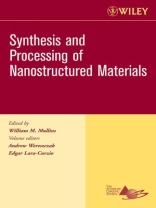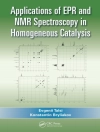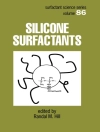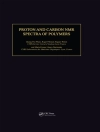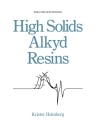Advances in nanotechnology offer great new promise in new
multifunctional systems that experts predict to be a major economic
force within the next decade. Ceramic materials enable new
developments in such areas as electronics and displays, portable
power systems and personnel protection. This issue will present the
results of current basic and applied research and potential
commercial applications.
This book is comprised of papers from the Proceedings of the 30th
International Conference on Advanced Ceramics and Composites,
January 22-27, 2006, Cocoa Beach, Florida. Organized and sponsored
by The American Ceramic Society and The American Ceramic Society’s
Engineering Ceramics Division in conjunction with the Nuclear and
Environmental Technology Division.
İçerik tablosu
Preface.
Introduction.
Nanoparticle Colloidal Suspension Optimization and Freeze-Cast
Forming (Kathy Lu and Chris S. Kessler).
Synthesis, Characterization and Measurements of Electrical
Properties of Alumina-Titania Nano-Composites (Vikas Somani and
Samar J. Kalita).
Synthesis and Characterization of Nanocrystalline Barium
Strontium Titanate Ceramics (Vikas Somani and Samar J. Kalita).
Nanoparticle Hydroxyapatite Crystallization Control by using
Polyelectrolytes (Mualla dner and dzlem Dogan).
Synthesis of Carbon Nanotubes and Silicon Carbide Nanofibers as
Composite Reinforcing Materials (Hao Li, Abhishek Kothari, and
Brian W. Sheldon).
3-D Microparticles of Ba Ti O, and Zn, Si O, via the Chemical
(Sol-Gel, Acetate, or Hydrothermal) Conversion of Biological
(Diatom) Templates (Ye Cai, Michael R. Weatherspoon, Eric Ernst,
Michael S. Haluska, Robert L. Snyder, and Kenneth H. Sandhage)
Polymer Fiber Assisted Processing of Ceramic Oxide Nano and
Submicron Fibers (Satyajit Shukla, Erik Brinley, Hyoung J. Cho, and
Sudipta Seal).
Phase Development in the Catalytic System V205/Ti02 under
Oxidizing Conditions (D. Habel, E. Feike, C. Schroder, H. Schubert,
A. Hosch, J., Stelzer, J. Caro, C. Hess, and A. Knop-Gericke).
Synthesis and Characterization of Cubic Silicon Carbide (O-Sic)
and Trigonal Silicon Nitride (a-Si, N, ) Nanowires (K. Saulig-Wenger,
M. Bechelany, D. Cornu, S. Bernard, F. Chassagneux, P. Miele, and
T. Epicier).
High Energy Milling Behavior of Alpha Silicon Carbide (M.
Aparecida Pinheiro dos Santos and C. Albano da.Costa Neto).
Synthesis of Boron Nitride Nanotubes for Engineering
Applications (J. Hurst, D. Hull, and D. Gorican).
Comparison of Electromagnetic Shielding in GFR-Nano Composites
(W.-K. Jung, S.-H. Ahn, and M.-S. Won).
Densification Behavior of Zirconia Ceramics Sintered Using
High-Frequency Microwaves (M. Wolff, G. Falk, R. Clasen, G.
Link, S. Takayama, and M. Thumm).
Manufacturing of Doped Glasses Using Reactive Electrophoretic
Deposition (REPD) (D. Jung, J. Tabellion, and R. Clasen).
Shaping of Bulk Glasses and Ceramics with Nanosized Particles
(J. Tabellion and R. Clasen).
Author Index.
Yazar hakkında
Andrew A. Wereszczak received his Ph.D. in Materials Science
& Engineering from the University of Delaware in 1992, and
while his research is varied, the study and interpretation of the
relationship between mechanical properties and microstructure (of
monolithic ceramics, structural materials, and electronic
materials) are common denominators. Micromechanical
characterization of structural and armor ceramics using
instrumented static and dynamic indentation (e.g., Hertzian) with
acoustic emission analysis, and adapting those measured
performances and damage mechanism analyses to strength, rolling
contact fatigue, wear, machining, and ballistic performances is a
primary objective.
Additionally, ceramic strength and fatigue testing, ceramic
fractographical and flaw population analyses, Weibull analysis
strength-size-scaling, and probabilistic life prediction and design
of structural ceramic components constitutive another primary
research objective. In support of all these efforts, both
conventional and microstructural-level finite element stress
analyses and microstructure characterization are performed. He is
the author or co-author of over 100 technical publications and has
given over 80 presentations, and is the co-developer of
µ-FEA software.
Mechanical Properties and Mechanics Group at Oak Ridge National
Laboratory. Since 1999 he has been serving as leader of the
Mechanical Characterization and Analysis User Center in
ORNL’s High Temperature Materials Laboratory.
Lara-Curzio received a B.Sc. degree in Engineering
Physics from the Metropolitan University in Mexico City in 1986 and
a Ph.D. in Materials Engineering from Rensselaer Polytechnic
Institute, Troy NY, in 1992.
His research work has been focused on studying the mechanical
behavior, durability and reliability of structural and functional
materials, on understanding the relationships among their
processing, microstructure and properties, studying the effect of
service environment on their properties and on developing models to
describe their behavior and to predict their service life.
Dr. Lara-Curzio has co-edited 6 books and has authored 4 book
chapters and more than 140 publications in refereed journals and
conference proceedings.
